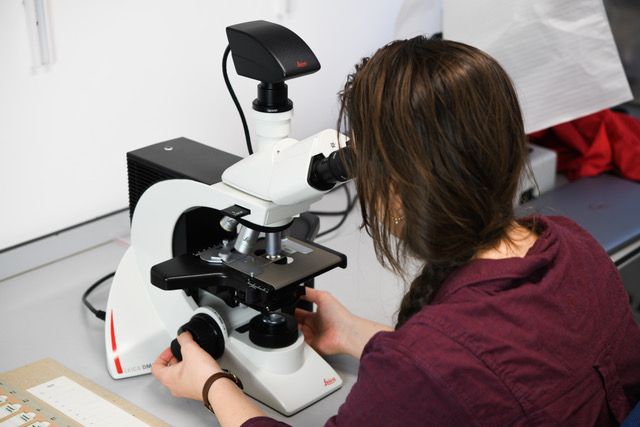Archaeology research equipment

Fieldwork, teaching and research equipment
Microscopes
- Leica M80 modular stereomicroscope
- Dinolite digital microscopes (small and portable, appropriate for for museum visits and fieldwork)
- Leica Wild M420 polarising microscope
- Olympus TGH metallographic microscope
Survey equipment
1. Total Stations
- Leica TCR307
- Leica TCR1205
- Leica TS09 plus
2. GPS & base station kit
- Leica GNSS CGR10
- Leica GNSS CS10
- Leica TS CS20
Geophysics
1. Earth Resistance systems:
- One RM85 and one working RM15 plus a MPX15 multiplier to add on which enables readings to be taken at two depths during the same survey (all made by GeoScan).
2. Magnetometry (gradiometry)
- Bartington GRAD 601 Dual (two probes to cover more area) and the Bartington GRAD 601 Single. Processing for all of these systems would be by survey laptops with software (Grad 601 and either GeoPlot version 3 or GeoPlot version 4 – the latter two from GeoScan and the previous from Bartington)
- Bartington MS2H – DOWN-HOLE PROBE, Magnetic Susceptibility meter
- FM36 Fluxgate Gradiometer
3. EM38 – BTR Ground Conductivity Meter (Dual Output Unit), from Geonics
This measures both quadrature-phase (conductivity) and in-phase (susceptibility) components with two receiver coils
Digital imaging
- RTI dome with LED light sources
- Two D5200 and one D5300 NIKON DX cameras with a variety of zoom and macro lenses, a light table, two copy stands and various sets of studio lights for artefacts’ photography
- Six CANON cameras with various zoom lenses for field work
Research Facilities
Laboratory Facilities
1. Laboratory space:
- Rotary evaporator
- Two metallographic sample polishing machines
- One electromantle
- One phosphate photometer
- One drill for ceramic sample extraction
- Glassware
2. Fume cabinet
3. Microscopy room
Storing and other Working Spaces
1. Chemical store
2. Cold store
3. Working space with dust extractor, kiln and furnace
4. Flotation facilities

